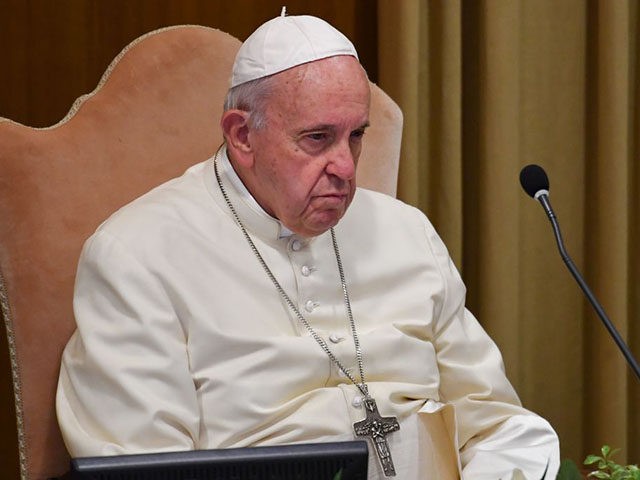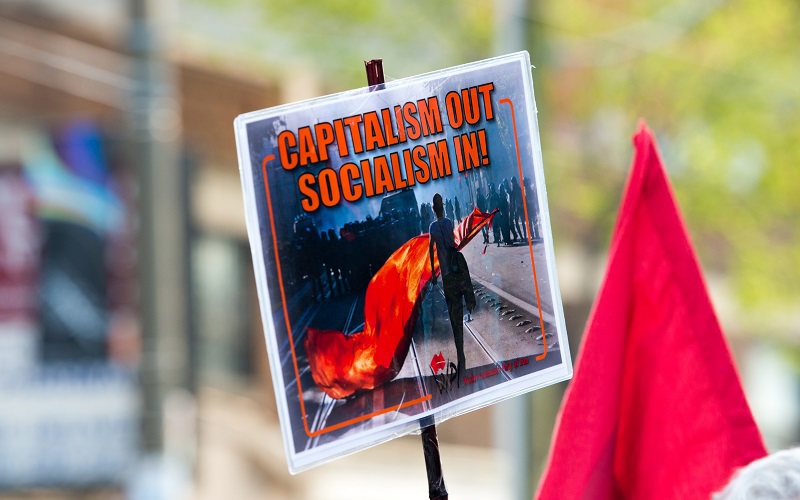Pope Francis told financiers Thursday they must help calculate the "ecological debt" the global north owes to the global south.
In his letter, he told the World Bank Group and the International Monetary Fund, "We cannot overlook the 'economical debt' that exists especially between the global north and global south."
What exactly does that mean?
Be informed, not misled.
Continuing, the Pope said, "We are, in fact, in debt to nature itself, as well as the people and countries affected by human-induced ecological degradation and biodiversity loss."
What exactly is he calling for?
Financial reparations and moral penance.
The Pope seems to be talking about a massive redistribution of wealth.
And a "grave" sin against Mother Nature---that can probably never be fully redeemed.
About the money:
"In this regard, I believe that the financial industry, which is distinguished by its great creativity, will prove capable of developing agile mechanisms for calculating this ecological debt," he says.
Continuing, he explains "so that developed countries can pay it, not only significantly limiting their consumption of non-renewable energy or by assisting poorer countries to enact policies and programs of sustainable development, but also by covering the costs of the innovation required for that purpose."
Yes, he's talking about a forced, massive redistribution of wealth from those who have it, to those who do not.
He says, "This necessarily means giving poorer and less developed nations an effective share in decision-making and facilitating access to the international market."
And he says, "As well as debt relief and access to vaccines, health, education, and jobs."
The redemption the Pope sees for the sins against nature, then becomes the redemption for having more wealth than our neighbor, which creates the need for a global mechanism to facilitate putting in place a consolidated global world monetary system.
What would follow? A one-world government to oversee the global financial system?
Would a one-world religion necessarily need to follow the one-world monetary and one-world governance to eliminate "extremism" from corrupting the one-world social order?
Apparently, the answer is "yes."
Francis concluded his letter by expressing hope in a future "where finance is at the service of the common good, where the vulnerable and the marginalized are placed at the center, and where the earth, our common home, is well cared for."
This is a call for a new model of global interconnectedness, or globalism, using the coronavirus as the vehicle for change---a so-called "progressive's" dream.
He says in recovering from the coronavirus pandemic, we "cannot be content to return to an unequal and unsustainable model of economic and social life, where a tiny minority of the world's population owns half of its wealth."
He says, "There remains an urgent need for a global plan" to achieve the "universal common good."
Making an appeal for globalism, Francis says, "For all our deeply held convictions that all men and women are created equal, many of our brothers and sisters in the human family, especially those at the margins of society, are effectively excluded from the financial world."
The spiritual concept of "equality" has been replaced with a secular concept of "equity."
Equality speaks to all being given an equal "opportunity", while "equity" speaks to everyone being given an "equal outcome."
Opportunity and outcome are very different.
Jesus taught equality of opportunity.
He taught capitalism.
Honest biblical research shows, not the socialism being advocated by the Pope, Protestant Jim Wallis, and others on the religious left, but a form of capitalism actually aligns itself with the teachings of Jesus.
God granted men land and possession. With this grant God expected the men to increase their wealth,
The parable of the talents in Matthew 25 demonstrates that mankind is expected to increase its wealth. The employee is also expected to increase his employer's wealth in accordance with their ability.
The Bible tells us in a number of places that we must work to eat. Ecclesiastes 5:18 is one place. You can look up the others.
Jesus was clear that we as individuals are to help the poor and the needy---in fact, the Bible says when we help the poor, we are "lending to God"---and He pays wonderful dividends.
But nowhere in the Bible does Jesus authorize us to transfer our individual responsibilities to the government or anyone else.
Caring for the poor and needy is a personal Christian requirement, but nowhere is continual support of our neighbor required.
My friend Bryan Fischer--- a radio host with American Family Association, has written an excellent article on this subject. I strongly recommend you read it here.
The Bible does not support the kind of welfare industry we have created in the name of "compassion." In most cases, it is not compassionate. It has created a class of dependent people, which has now become generational.
Welfare, as we know it, has become a life of dependence and bondage, controlled by those in power, used to keep them in power.
That isn't biblical. Those whom the Son sets free, are free indeed.
The biblical model is God's people voluntarily doing God's work, including charitable acts for the poor and those in need.
That doesn't look like the forced redistribution of wealth that the religious left insists upon imposing under the guise of "compassion." It looks more like Karl Marx's failed socialism.
Be Informed. Be Discerning. Be Vigilant. Be Prayerful.


